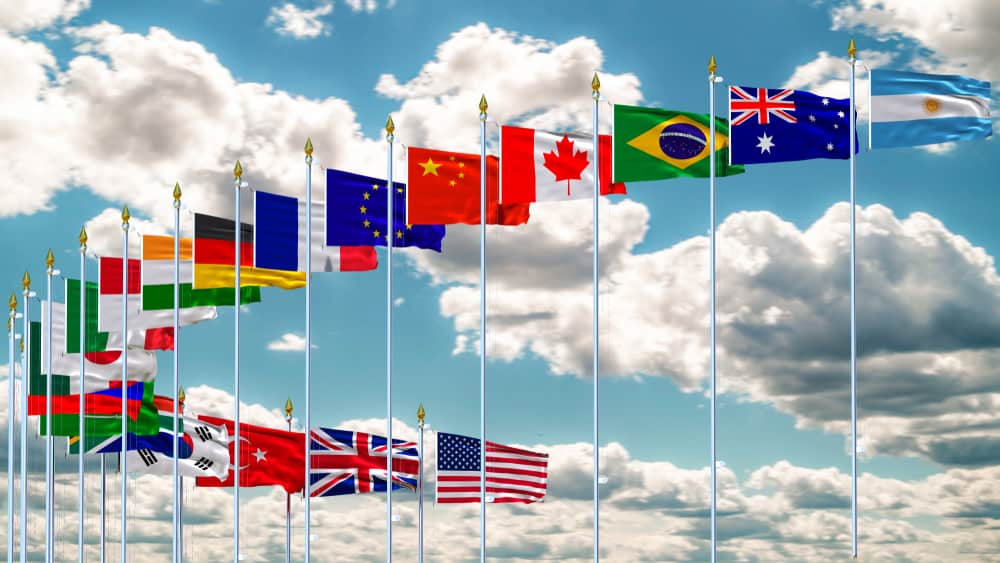
Takeaways:
- The U.S.’s smoothly run midterm election was a major victory for democracy
- The outcome dealt a blow to Russia as the U.S. will likely continue to aid Ukraine
- Threats to democracy persist, such as disinformation campaigns and violence

Former California Congresswoman Jane Harman was overseas in the United Kingdom last week when the U.S. midterm election results rolled in. Harman, the Presidential Scholar-in-Residence at the USC Sol Price School of Public Policy, heard plenty of comments about the latest chapter in American politics, one that saw Democrats defy expectations and far-right election deniers get clobbered.
Foreign governments “were relieved at the election results, but they’re not sure if Congress will get anything done,” said Harman, who spoke about the midterm elections at the universities of Cambridge and Oxford. Yet even as allies around the world breathed a sigh of relief, they remained concerned, Harman noted.
“Foreign governments are still cautious about whether we’ll succeed,” she said. “They’re wondering: ‘Will it last? Will Trump be back? How long can we count on the U.S.?’”
And they’re concerned that 2024 “will be the same sort of circus” as the 2020 Presidential Election, culminating with supporters of former President Donald Trump rioting at the U.S. Capitol and falsely claiming the presidential election had been stolen, she added.

USC experts said the midterm elections were closely watched by foreign allies and adversaries. The results, they said, sent a positive message to Western allies, with Democrats unexpectedly retaining control of the Senate, thereby ensuring continuity from the U.S. government on foreign policy—including its support of Ukraine.
“We had signs that if the Republicans took both houses of Congress, that they would cut back on that aid to Ukraine, that they would be reevaluating it,” said Robert English, associate professor of international relations at the USC Dornsife College of Letters, Arts and Sciences. “Russia has to be disappointed that the Democrats did so well because it means our strong support with Ukraine will not flag.”
The 2022 midterm elections were also a chance to assess the state of American democracy. The U.S. has long held itself as the world’s leading democracy, encouraging other nations to adopt similar forms of government. Right-wing efforts to overturn President Joe Biden’s win in 2020 – climaxing with the failed insurrection on Jan. 6, 2021 – did serious damage to America’s standing as an example of democracy, said Gregory Treverton, Professor of the Practice of International Relations at USC Dornsife.

“We’ve been too willing to lecture other countries on their democracy, and now they look at us and say, ‘This is a democracy in trouble,’” said Treverton, who served as chairman of the National Intelligence Council in the Obama administration. America’s recent struggles come as autocracies like China argue their forms of government are more effective. “The more we stumble, the more it seems we do give ammunition” to those rivals, he added.
In that sense, the midterms were an important win for democracy. The election didn’t include armed mobs at polling stations or major efforts to overturn the results, as some observers feared. “It was a major victory in that larger standoff between autocracies and democracies worldwide,” English said.
Still, America and its allies can’t rest easy yet. Disinformation campaigns will continue to sow mistrust in the electoral process, and there will be more physical security threats in the months and years ahead, said Erroll G. Southers, USC Price School Professor of the Practice in National and Homeland Security.

“This may be a moment for America to exhale, but most certainly not the time to relax,” he said. The threat of domestic violent extremism like the Jan. 6 riot “is persistent, evolving and the result of a complex, multi-layered collection of societal dynamics.”
And Trump, whose election lies sowed distrust in American democracy and allegedly motivated a mob to attack the Capitol, announced this week that he is running for president again. That’s likely a concern to allies seeking consistency from the U.S. government.
“They may not always like us, but they want us to be reliable,” Treverton said of American allies. “Biden has done a terrific job of trying to rebuild the Western coalition around NATO and our close friends. But they all worry that we’re one election away from something very different.”